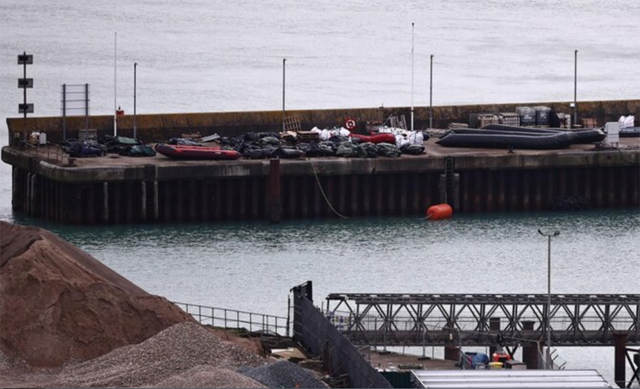WARSAW — The number of irregular crossings into the European Union recorded in 2024 fell to the lowest level since 2021, the bloc's border agency Frontex said on Tuesday.
Warsaw-based Frontex, which regularly publishes statistics on irregular entries into the EU, said last year's preliminary data revealed "a significant 38-percent drop" in crossings.
The agency said in a statement the numbers were at "the lowest level since 2021, when migration was still affected by the COVID pandemic".
Frontex said the decrease in undocumented asylum seekers was mainly driven by a plunge in arrivals through the Central Mediterranean and the Western Balkans routes.
"Despite persistent migration pressure, intensified EU and partner cooperation against smuggling networks has significantly reduced crossings at Europe's external borders," Frontex said.
Overall, in 2024 the agency saw over 239,000 irregular entries into the EU.
The biggest fall was registered along the route through the Western Balkans, a 78-percent drop that Frontex attributed to "strong efforts by regional countries to stem the flow".
Irregular entries detected via the Central Mediterranean fell by 59 percent due to "fewer departures from Tunisia and Libya", Frontex said.
Despite the decrease, the route still accounted for about 67,000 crossings, the second highest among all routes after the Eastern Mediterranean route, it added.
'Weaponisation'
Other routes used by undocumented asylum seekers, however, saw sharp increases.
The Canary Islands registering an 18-percent rise in arrivals to almost 47,000, the highest figure since Frontex began collecting data in 2009.
This was "fuelled by departures from Mauritania", Frontex said, adding that "flows from other departure points declined".
Spain has moved to the forefront of the European Union's migration flow as tighter controls in the Mediterranean push more asylum seekers to attempt the perilous trip from West Africa to the Canaries.
The agency also said a "threefold" rise in detections was registered at the EU's eastern land borders, including at Poland's border with Belarus.
EU states along the bloc's eastern edge have accused Russia and its ally Belarus of pushing thousands of migrants over their borders in recent years as part of a campaign to destabilise Europe.
In December, the EU said that member states bordering Russia and Belarus could limit the right to asylum for migrants in the event of their "weaponisation" by Moscow and Minsk.
Polish Prime Minister Donald Tusk said last month the right to asylum "is being used today, especially on the border with Belarus, by Poland's enemies".
Commenting on the latest figures, Frontex's executive director Hans Leijtens said that 2024 "highlighted emerging risks and shifting dynamics".
The agency said these involve smuggling networks adapting to new circumstances and rapidly shifting migration flows.
It also warned against "increasing violence" by smugglers along the Western Balkans route.
